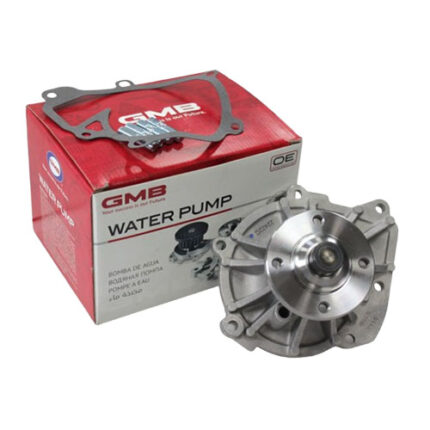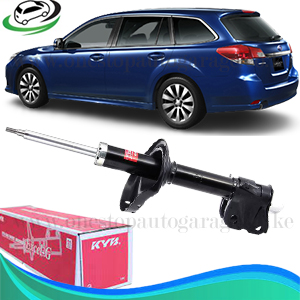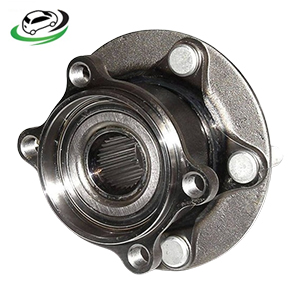Get Subaru Forester Front Wheel Hub Bearing 28373-SC000 in Kenya
The front wheel hub bearing is a critical component in a vehicle’s suspension and steering system. It allows the wheels to rotate smoothly while supporting the vehicle’s weight and maintaining proper alignment. Without a functional wheel hub bearing, driving becomes unsafe due to vibrations, noise, and potential wheel detachment.
In this guide, we’ll explore:
- The function of front wheel hub bearings
- Different types
- Common symptoms of failure
- Maintenance tips
1. Function of a Front Wheel Hub Bearing
A wheel hub bearing is a set of steel balls (or rollers) enclosed in a metal ring, called a race. It is housed within the wheel hub assembly and serves several crucial functions:
1.1. Enabling Smooth Wheel Rotation
The bearing minimizes friction, allowing the front wheels to rotate freely at different speeds, especially during turns.
1.2. Supporting Vehicle Load
Since the wheels bear the entire weight of the vehicle, the hub bearing distributes this load efficiently while ensuring smooth movement.
1.3. Reducing Friction and Heat
As the wheel turns, friction generates heat. The bearing contains grease for lubrication, preventing excessive wear and tear.
1.4. Enhancing Steering and Suspension Performance
Since the hub bearing connects directly to the steering knuckle, its condition affects the responsiveness and precision of the steering system.
1.5. Integrating with ABS and Traction Control Systems
Many modern vehicles have wheel speed sensors inside the hub bearing to monitor rotational speed and assist with ABS (Anti-lock Braking System) and traction control.
2. Types of Front Wheel Hub Bearings
There are several types of wheel hub bearings, each with specific designs and applications.
2.1. Ball Bearings
- The most common type
- Uses steel balls inside an inner and outer ring
- Can handle both radial (up and down) and axial (side-to-side) forces
- Found in many passenger cars and light-duty vehicles
2.2. Tapered Roller Bearings
- Uses conical rollers instead of balls
- Designed to handle higher loads and increased stress
- Commonly found in trucks, SUVs, and heavy-duty vehicles
2.3. Angular Contact Bearings
- Designed for high-speed rotation and high load capacity
- Found in high-performance sports cars and precision machinery
2.4. Sealed Hub Bearings (Wheel Hub Assemblies)
- Modern vehicles often use sealed hub assemblies
- These include pre-lubricated bearings and ABS sensors
- Requires no maintenance but must be replaced when worn out
3. Symptoms of a Failing Front Wheel Hub Bearing
Recognizing early warning signs can prevent serious issues. Here are the common symptoms of a bad wheel hub bearing:
3.1. Unusual Noises
- Grinding or humming sound: Indicates worn-out bearings
- Clicking or knocking noise: Sign of excessive wear
3.2. Steering Instability
- Steering feels loose
- Vehicle pulls to one side
3.3. Vibrations
- Vibrations in the steering wheel
- Shaking at high speeds
3.4. Uneven Tire Wear
- Worn-out bearings can misalign the wheels, leading to irregular tire wear
3.5. ABS Warning Light
- If the ABS sensor inside the bearing fails, the dashboard warning light may turn on
4. Causes of Wheel Hub Bearing Failure
Several factors can lead to premature wheel hub bearing failure:
4.1. Poor Road Conditions
- Potholes, rough roads, and speed bumps put stress on the bearings
4.2. Water and Dirt Contamination
- If moisture or dirt enters the bearing, it can cause corrosion and wear
4.3. Lack of Lubrication
- Bearings need grease for smooth rotation; sealed bearings eliminate this issue
4.4. Incorrect Installation
- Over-tightening or improper torque can lead to excessive stress and failure
4.5. Accidents and Collisions
- Impact damage can misalign the bearings and cause failure
5. Maintenance and Replacement
5.1. Inspection Tips
- Check for noises by spinning the wheel while the car is lifted
- Feel for play by shaking the wheel from the top and bottom
5.2. When to Replace a Front Wheel Hub Bearing
- Most OEM bearings last between 85,000 – 120,000 km
- If you hear grinding or humming noises, replace the bearing immediately
5.3. DIY vs. Professional Replacement
✅ DIY Replacement: Possible if you have mechanical skills, a press, and tools
✅ Professional Mechanic: Recommended, as improper installation can damage the suspension
5.4. Steps for Replacing a Front Wheel Hub Bearing
- Lift the Vehicle – Secure it on jack stands
- Remove the Wheel and Brake Assembly
- Detach the Steering Knuckle (if needed)
- Press Out the Old Bearing
- Install the New Bearing and Reassemble
Note: Some cars use bolt-on hub assemblies, making the process easier.
6. Choosing the Right Replacement Wheel Hub Bearing
When buying a new front wheel hub bearing, consider the following:
6.1. OEM vs. Aftermarket Bearings
- OEM (Original Equipment Manufacturer): Made by the same company that supplied the car manufacturer
- Aftermarket: Cheaper, but quality varies
6.2. Material and Brand Quality
- Choose high-quality brands like SKF, NTN, Timken, NSK, FAG, MOOG, or PFI
6.3. Warranty and Durability
- Some manufacturers offer warranties up to 3 years
7. Conclusion
The front wheel hub bearing plays a crucial role in steering stability, wheel rotation, and vehicle safety. Regular inspections and timely replacement ensure smooth driving and prevent costly repairs.
Follow us on Facebook for more parts.



